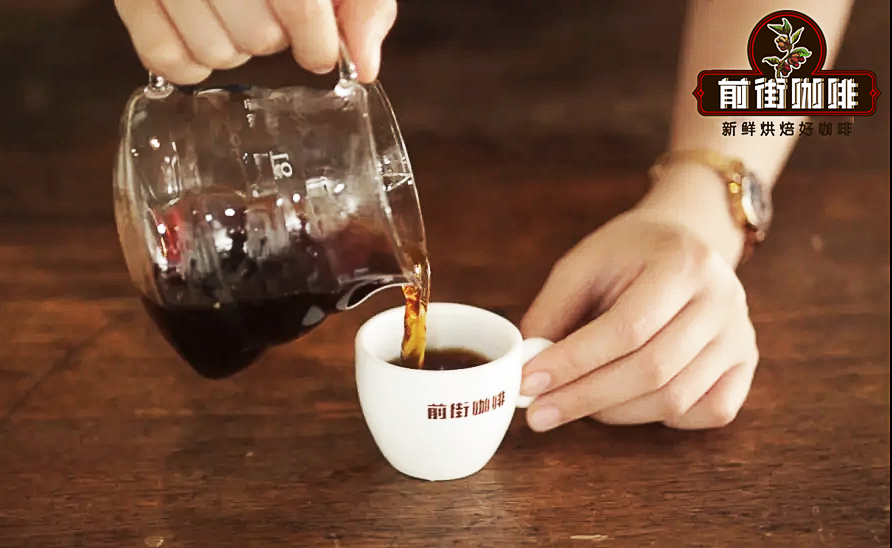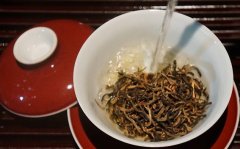What kind of water should be used to brew Phoenix Dancong tea? Can soft water be used to make oolong tea?
Tea experts knew the importance of water quality when brewing coffee long before Caldy's imaginary goat tasted coffee for the first time. Lu Yu, an eighth-century tea master who loved springs, wrote in the Book of Tea: "the best springs flow slowly on the stone pools on the primitive hillside." Using the right water to make tea is considered so important that some springs suitable for making tea have become famous and attract tourists from all over China. Although the mineral content of tea has a significant impact on the appearance and taste of tea, there is no broad consensus on which kind of water is most suitable for tea. On the contrary, it seems that different teas benefit from different water, and personal tastes also play a role. Some tea fans also prefer a kind of tea for some invisible reasons, such as the gas of water, or the physical distance between the tea source and the tea origin. The winemaker will even add some stones to the pot to mineralize the water or give it a specific local characteristic. Choosing the right water for a particular type of tea is considered part of the art of brewing, which requires a long period of experience. In this article, however, we take a more insipid approach to delving into this topic. Modern science confirms the importance of mineral content in tea brewing water and provides some clues as to why some water is most suitable for brewing certain kinds of tea.

The most frequently cited industry guide for soft-boiled tea comes from the American Tea Association and is not much different from the water we use to make coffee: 6-8ph50-150ppm TDS (Total dissolved solids) Total hardness 80ppm however, most tea experts point out that softer water in this range is best for special teas. Yu Minhong himself may prefer the water of Gaoshan Spring for this reason, because the water of Gaoshan Spring has little contact with bedrock, so the spring is relatively soft. Most of the published studies on this subject have come to the same conclusion. One study compared different types of tea brewed with tap water (about 200ppm), bottled mineral water (70ppm), mountain spring water (20ppm) and pure water (Xu et al. 2017). The researchers found that water with lower mineral content tastes better, while mountain spring water is generally the best. Increasing the hardness of the brewing water will reduce the bitter, sweet and fresh taste of the tea and make the tea more astringent. Tea made from low-mineral water also has a better appearance. Hard water forms two kinds of solid deposits in tea: one is the familiar "scum" that forms a film on the surface of the tea, and the other is "tea cream", a turbid solid formed when the tea is cooled. Tea soaked in soft water is clearer, lighter in color and less likely to form scum. It has been found that the pH value of water is also an important factor. They adjust the pH value of tap water by adding acid until it reaches 6, which is roughly the same as the pH value of landscape. This improves the taste and clarity of the tea, but does not fully make up for the difference in hardness. Another study also found that water with low hardness and low pH helps brew better tea, but also points out that green tea seems to be more affected by the mineral content of the water than black tea. This is probably because of the importance of catechins in the taste and appearance of green tea. Xu et al found that the pH value of water is also an important factor. They adjust the pH value of tap water by adding acid until it reaches 6, which is roughly the same as the pH value of landscape. This improves the taste and clarity of the tea, but does not fully make up for the difference in hardness. Another study also found that water with low hardness and low pH helps brew better tea, but also points out that green tea seems to be more affected by the mineral content of the water than black tea. This is probably because of the importance of catechins in the taste and appearance of green tea.
Important Notice :
前街咖啡 FrontStreet Coffee has moved to new addredd:
FrontStreet Coffee Address: 315,Donghua East Road,GuangZhou
Tel:020 38364473
- Prev

Can I have milk in my hand coffee? What's the taste of coffee made with milk? Hand flushing with milk tastes good.
Would you like some coffee with milk, my friend? Are you a fan of Zaifen or a fan of milk coffee? Sometimes I talk with my friends about my taste of coffee, and even when it comes to the question of whether to add milk or sugar to hand-brewed coffee, everyone has their own opinions: Daming thinks that coffee is to taste the original taste of black coffee; but Xiaoming thinks that coffee (whether hand-brewed, American or cold)
- Next

Song species Huangzhixiang Dancong Oolong is better to brew tea with soft water or hard water? Why is it good to drink?
Instead of using a panel of experts, a US study used a large group of typical tea consumers to determine the effects of the chemical composition of water on tea making (Franks et al. 2019). The result is basically the same as the previous study: soft water can extract more catechins, and it has a good effect on catechin.
Related
- Unexpected! Ruixing Telunsu lattes use a smoothie machine to foam milk?!
- % Arabia's first store in Henan opens into the village?! Netizen: Thought it was P's
- Does an authentic standard mocha coffee recipe use chocolate sauce or powder? Mocha Latte/Dirty Coffee/Salty Mocha Coffee Recipe Share!
- What is the difference between Vietnam egg coffee and Norway egg coffee? Hand-brewed single product coffee filter paper filter cloth filter flat solution!
- What is the difference between sun-cured and honey-treated coffee? What are the differences in the flavor characteristics of sun-honey coffee?
- How to make Italian latte! How much milk does a standard latte use/what should the ratio of coffee to milk be?
- How to make butter American/butter latte/butter Dirty coffee? Is hand-brewed coffee good with butter?
- Is Dirty the cold version of Australian White? What is the difference between dirty coffee/decent coffee and Australian white espresso?
- Relationship between brewing time and coffee extraction parameters How to make the brewing time fall to 2 minutes?
- Got entangled?! Lucky opens a new store, Mixue Ice City, and pursues it as a neighbor!

